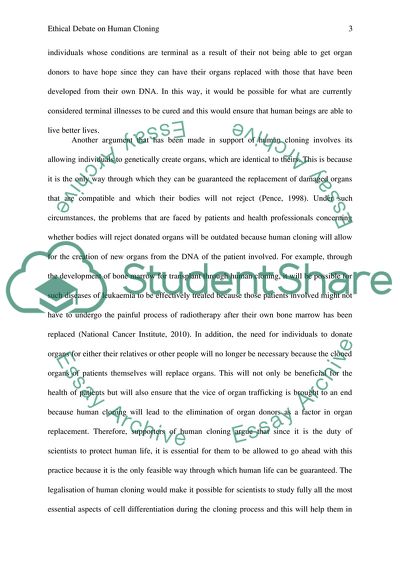Cite this document
(Ethical Debate on Human Cloning Essay Example | Topics and Well Written Essays - 2250 words, n.d.)
Ethical Debate on Human Cloning Essay Example | Topics and Well Written Essays - 2250 words. https://studentshare.org/ethics/1857458-technology-and-organisation-society-and-risk
Ethical Debate on Human Cloning Essay Example | Topics and Well Written Essays - 2250 words. https://studentshare.org/ethics/1857458-technology-and-organisation-society-and-risk
(Ethical Debate on Human Cloning Essay Example | Topics and Well Written Essays - 2250 Words)
Ethical Debate on Human Cloning Essay Example | Topics and Well Written Essays - 2250 Words. https://studentshare.org/ethics/1857458-technology-and-organisation-society-and-risk.
Ethical Debate on Human Cloning Essay Example | Topics and Well Written Essays - 2250 Words. https://studentshare.org/ethics/1857458-technology-and-organisation-society-and-risk.
“Ethical Debate on Human Cloning Essay Example | Topics and Well Written Essays - 2250 Words”. https://studentshare.org/ethics/1857458-technology-and-organisation-society-and-risk.


